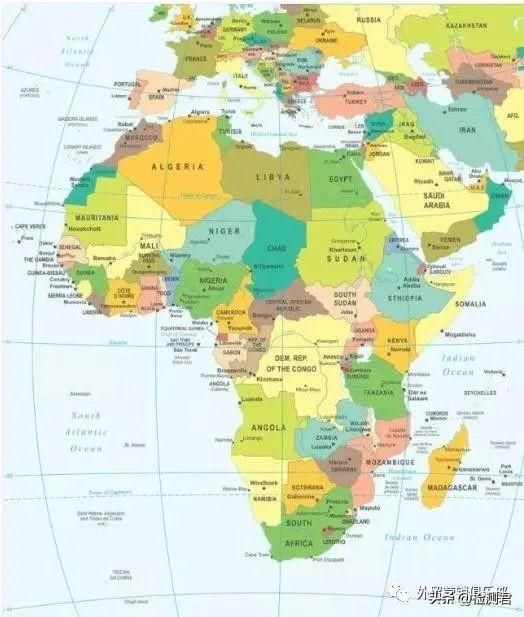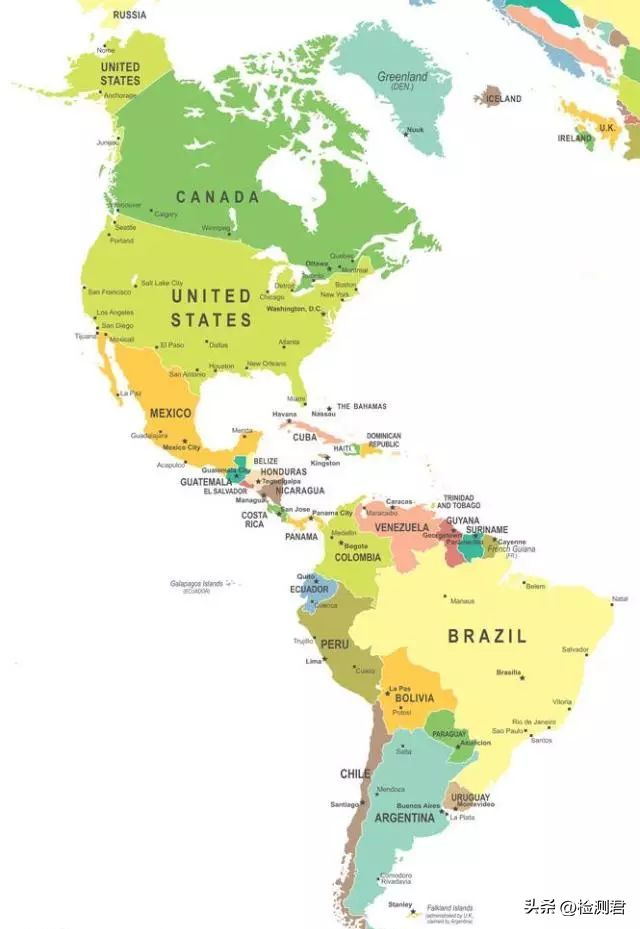The customs and cultures of all countries in the world are very different, and each culture has its own taboos. Maybe everyone knows a little about the diet and etiquette of all countries, and will pay special attention when traveling abroad. So, do you understand the purchasing habits of various countries?
Asia
At present, most countries in Asia, except Japan, are developing countries. Agriculture plays an important role in Asian countries. The industrial base of most countries is weak, the mining industry and agricultural product processing industry are relatively advanced, and the heavy industry is developing.
Japan
The Japanese are also known in the international community for their rigor. They like team negotiation and have high requirements. The inspection standards are very strict, but their loyalty is very high. After cooperation, they seldom change suppliers. Trading habits: introverted and prudent, pay attention to etiquette and interpersonal relationships, confident and patient, outstanding team spirit, fully prepared, strong planning, and focus on long-term interests. Be patient and resolute, and sometimes have an ambiguous and tactful attitude. The “wheel tactics” and “silence breaking the ice” are often used in negotiations. Precautions: Japanese businessmen have a strong sense of group and are used to collective decision-making. “Win more with less” is a negotiation habit of Japanese businessmen; Pay attention to the establishment of personal relationships, do not like to bargain over contracts, pay more attention to credibility than contracts, and intermediaries are very important; Pay attention to etiquette and face, never directly accuse or reject the Japanese, and pay attention to the issue of gift giving; “Procrastination tactics” are the “tricks” used by Japanese businessmen. Japanese businessmen do not like hard and fast “sales promotion” negotiations, and pay attention to calmness, self-confidence, elegance and patience.
the republic of korea
Korean buyers are good at negotiation, clear and logical. Trading habits: Koreans are more courteous, good at negotiation, clear and logical, and have strong understanding and reaction ability. They attach importance to creating atmosphere. Their businessmen are generally unsmiling, solemn and even dignified. Our suppliers should be fully prepared, adjust their mentality, and not be overwhelmed by the momentum of the other party.
India/Pakistan
The buyers of these two countries are sensitive to price, and the buyers are seriously polarized: either they bid high, but require the best products; Either the bid is very low and there is no requirement for quality. Like to bargain, you should be prepared for a long time of negotiation and discussion when working with them. Establishing a relationship plays a very effective role in facilitating the transaction. Pay attention to the authenticity of the seller, and it is recommended to ask the buyer for cash transaction.
Saudi Arabia/UAE/Türkiye and other countries
Accustomed to indirect transactions through agents, and the performance of direct transactions was cold; The requirements for products are relatively low. They pay more attention to color and prefer dark items. The profit is small and the quantity is small, but the order is fixed; The buyer is honest, but the supplier should pay special attention to the agent to avoid being pressured by the other party in various ways; We should pay attention to the principle of keeping promises, keep a good attitude, and don’t haggle too much about several samples or sample mailing fees.
Europe
Summary analysis: Common characteristics: I like to purchase a variety of styles, but the purchase volume is small; Pay great attention to product style, style, design, quality and material, require environmental protection, and have high requirements for style; Generally, they have their own designers, which are scattered, mostly personal brands, and have brand experience requirements. Its payment method is relatively flexible. It pays no attention to factory inspection, pays attention to certification (environmental protection certification, quality and technology certification, etc.), and pays attention to factory design, research and development, production capacity, etc. Most suppliers are required to do OEM/ODM.
britain
If you can make British customers feel that you are a gentleman, the negotiation will be more smooth. The British people pay special attention to the formal interests and follow the procedure, and pay attention to the quality of the trial order or sample list. If the first written test list fails to meet its requirements, there is generally no follow-up cooperation. Note: When negotiating with the British people, we should pay attention to the equivalence of identity, observe the time, and pay attention to the claim clauses of the contract. Many Chinese suppliers often meet some British buyers at the trade fair. When exchanging business cards, they find that the address is “XX Downing Street, London”, and the buyers live in the center of a big city. But at first glance, the British are not a pure Anglo-Saxon white, but a black of African or Asian descent. When talking, they will find that the other side is not a big buyer, so they are very disappointed. In fact, Britain is a multi-ethnic country, and many large white buyers in Britain do not live in cities, because some British businessmen with a long history and tradition of family business (such as shoemaking, leather industry, etc.) are likely to live in some manors, villages, even in the old castle, so their addresses are generally such as “Chesterfield” “Sheffield” and other places with “field” as the suffix. Therefore, this point needs special attention. British businessmen living in rural manors are likely to be big buyers.
Germany
German people are rigorous, planned, pay attention to work efficiency, pursue quality, keep promises, and cooperate with German businessmen to make a comprehensive introduction, but also pay attention to product quality. Don’t beat around the bush in negotiations, “less routine, more sincerity”. The German negotiating style is prudent and prudent, and the range of concessions is generally within 20%; When negotiating with German businessmen, we should pay attention to addressing and giving gifts, make full preparations for the negotiation, and pay attention to the negotiation candidates and skills. Moreover, the supplier must pay attention to providing high-quality products, and at the same time pay attention to the decisive performance at the negotiation table. Don’t always be sloppy, pay attention to the details in the whole process of delivery, track the situation of the goods at any time and timely feed back to the buyer.
France
Most French are outgoing and talkative. If you want French customers, you’d better be proficient in French. However, they do not have a strong sense of time. They are often late or unilaterally change time in business or social communication, so they need to be prepared. French businessmen have strict requirements for the quality of goods, and the conditions are relatively harsh. At the same time, they also attach great importance to the beauty of goods, and require exquisite packaging. The French have always believed that France is the world trend leader of high-quality goods. Therefore, they are very particular about their clothes. In their view, clothes can represent a person’s culture and identity. Therefore, when negotiating, prudent and well-dressed clothes will bring good results.
Italy
Although Italians are outgoing and enthusiastic, they are cautious in contract negotiation and decision-making. Italians are more willing to do business with domestic enterprises. If you want to cooperate with them, you should show that your products are better and cheaper than Italian products.
Spain
Transaction method: payment for goods is made by letter of credit. The credit period is generally 90 days, and the large chain stores are about 120 to 150 days. Order quantity: about 200 to 1000 pieces each time Note: the country does not charge tariffs on its imported products. Suppliers should shorten production time and pay attention to quality and goodwill.
Denmark
Trading habits: Danish importers are generally willing to accept L/C when doing the first business with a foreign exporter. Thereafter, cash against documents and 30-90 days D/P or D/A are usually used. Orders with small amount at the beginning (sample consignment or trial sale orders)
In terms of tariffs: Denmark gives most-favoured-nation treatment or more preferential GSP to goods imported from some developing countries, Eastern European countries and Mediterranean coastal countries. However, in fact, there are few tariff preferences in the steel and textile systems, and countries with large textile exporters often adopt their own quota policies. Note: The same as the sample, the foreign exporter should pay attention to the delivery date. When a new contract is performed, the foreign exporter should specify the specific delivery date and complete the delivery obligation in time. Any delay in delivery due to breach of the delivery date may result in the cancellation of the contract by the Danish importer.
Greece
Buyers are honest but inefficient, do not pursue fashion, and like to waste time (Greeks have a belief that only the rich people who have time to waste, so they prefer to bask in the sun at the Aegean beach, rather than go to make money in and out of business.)
The characteristics of the Nordic countries are simple, modest and prudent, step-by-step, calm and calm. Not good at bargaining, like to be practical and efficient; We pay more attention to product quality, certification, environmental protection, energy conservation and other aspects than to price.
Russian buyers from Russia and other Eastern European countries like to talk about large-value contracts and are demanding on transaction terms and lack flexibility. At the same time, Russians are relatively slow in handling affairs. When communicating with Russian and Eastern European buyers, they should pay attention to timely tracking and follow-up to avoid the other side’s fickle. As long as the Russian people do business after signing the contract, TT direct telegraphic transfer is more common. They require timely delivery and rarely open LC. However, it is not easy to find a connection. They can only go through the Show Show or visit in the local area. The local language is mainly Russian, and English communication is rare, which is difficult to communicate. Generally, we will seek the assistance of translators.
Africa
African buyers purchase less and more miscellaneous goods, but they will be more urgent. Most of them use TT and cash payment methods, and do not like to use letters of credit. They buy goods at sight, hand in money and hand in delivery, or sell goods on credit. African countries implement pre-shipment inspection of import and export commodities, which increases our costs in practical operation, delays the delivery date and hinders the normal development of trade. Credit cards and checks are widely used in South Africa, and it is customary to “consume before pay”.
Morocco
Trading habits: adopt cash payment with low quoted value and price difference. Notes: Morocco’s import tariff level is generally high and its foreign exchange management is strict. D/P mode has a large risk of foreign exchange collection in the export business to the country. Moroccan customers and banks collude with each other to pick up the goods first, delay in payment, and pay at the request of domestic banks or export enterprises after repeated urging by our office.
South Africa
Transaction habits: credit cards and checks are widely used, and the habit of “consumption before payment”. Notes: Due to limited funds and high bank interest rate (about 22%), they are still used to payment at sight or installment, and generally do not open sight letters of credit.
America
Summary analysis: The trading habit in North America is that the merchants are mainly Jewish, mostly wholesale business. Generally, the purchase volume is relatively large, and the price should be very competitive, but the profit is low; Loyalty is not high, it is realistic. As long as he finds a lower price, he will cooperate with another supplier; Pay attention to factory inspection and human rights (such as whether the factory uses child labor, etc.); Usually L/C is used for 60 days of payment. They attach importance to efficiency, cherish time, pursue practical interests, and attach importance to publicity and appearance. The negotiation style is outgoing and forthright, confident and even arrogant, but the contract will be very cautious when dealing with specific business. American negotiators attach importance to efficiency and like to make quick decisions. When negotiating or quoting, they should pay attention to the whole. When quoting, they should provide a complete set of solutions and consider the whole; Most Canadians are conservative and do not like price fluctuations. They prefer to be stable.
The trading habit in South America is usually large in quantity, low in price and low in price, and low in quality; There are no quota requirements, but there are high tariffs. Many customers do CO from third countries; Few banks in Mexico can open letters of credit. It is recommended that buyers pay in cash (T/T). Buyers are usually stubborn, individualistic, casual, and emotional; The concept of time is also weak and there are many holidays; Show understanding when negotiating. At the same time, many South American buyers lack knowledge of international trade, and even have a very weak concept of L/C payment. In addition, the contract performance rate is not high, and the payment cannot be made as scheduled due to repeated modifications. Respect customs and beliefs, and avoid involving political issues in negotiations; Since countries have different policies on export and foreign exchange control, they should carefully investigate and study the contract terms clearly to avoid disputes after the event; Because the local political situation is unstable and the domestic financial policy is volatile, when doing business with South American customers, we should be particularly cautious, and at the same time, we should learn to use the “localization” strategy, and pay attention to the role of the Chamber of Commerce and the Commercial Advocacy Office.
North American countries attach importance to efficiency, pursue realistic interests, and attach importance to publicity and appearance. The negotiation style is outgoing and forthright, confident and even arrogant, but the contract will be very cautious when dealing with specific business.
U.S.A
The biggest characteristic of American buyers is efficiency, so it is best to introduce your advantages and product information in the email as soon as possible. Most American buyers have little pursuit of brands. As long as the products are of high quality and low price, they will have a large audience in the United States. However, it pays attention to factory inspection and human rights (such as whether the factory uses child labor). Usually L/C, 60 days payment. As a non-relationship-oriented country, American customers will not talk to you because of long-term transactions. Special attention should be paid to the negotiation or quotation with American buyers. The whole should be considered as a whole. The quotation should provide a complete set of solutions and consider the whole.
Canada
Some of Canada’s foreign trade policies will be affected by Britain and the United States. For Chinese exporters, Canada should be a country with high credibility.
Mexico
The attitude when negotiating with Mexicans should be considerate. The serious attitude is not suitable for the local negotiation atmosphere. Learn to use the “localization” strategy. Few banks in Mexico can open letters of credit. It is recommended that buyers pay in cash (T/T).
Post time: Mar-01-2023








